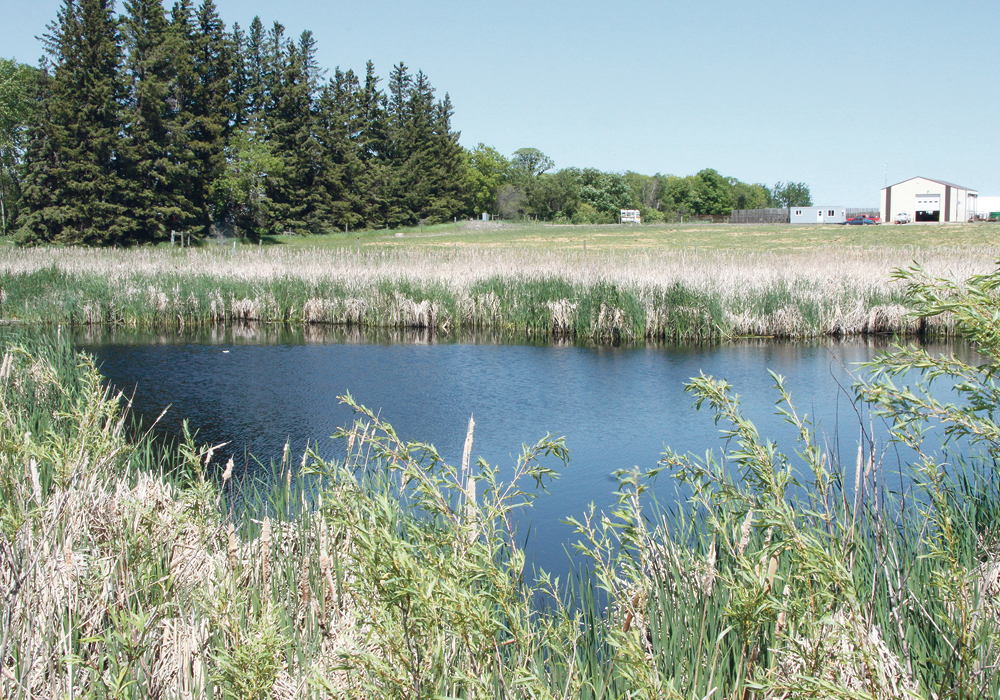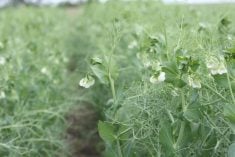Manitoba Association of Watersheds and Canola Council of Canada will help distribute $64 million to on-farm projects
More than $60 million in federal funding is expected to be spent helping farmers and agricultural areas increase sustainability and reduce environmental emissions.
To do that, the federal government has turned to two Manitoba-based organizations with close ties to farmers and with focuses on boosting agricultural viability while improving the environment.
“In order to build resilience to extreme weather, farmers are already turning towards sustainable practices and technologies that work in real farm conditions,” said Terry Duguid, Winnipeg member of Parliament and parliamentary secretary for the ministers of environment and for economic development. He was announcing that the Manitoba Association of Watersheds and the Canola Council of Canada will channel $64 million toward practical sustainability on the farm.
Read Also

New program aims to support plant-based exports to Asia
Understanding the preferences of consumers in Taiwan and how they differ from Indonesia or Malaysia isn’t easy for a small company in Saskatchewan.
“Both of your organizations are vital to the sustainability and economic growth of the agricultural sector here in Manitoba.”
The watersheds association is fronting a group of 38 Saskatchewan and Manitoba organizations that will focus on agricultural water management, while the CCC is focused on improving canola productivity while slashing emissions of greenhouse gases. Both organizations are already heavily involved in farm-level sustainability initiatives and programming.
“We are taking a grassroots, localized approach to addressing issues related to climate change and agriculture,” said Lynda Nichol, the watersheds association’s executive director.
“Supporting farmers to implement beneficial management practices on their farm will have a positive impact on Canadian agriculture as a whole.”
Nichol’s organization has been conducting on-farm tests of various practices that could improve water management and agricultural stability. It is also a champion of “regenerative agriculture” practices such as rotational grazing, nitrogen management and cover cropping.
Canola council research vice-president Curtis Rempel said the funding will help the CCC assist farmers in developing and embracing practices that will reduce the already dropping per-bushel emissions of greenhouse gases from canola production.
“Canadian canola is a solutions provider when it comes to the environment,” said Rempel, highlighting the efforts of thousands of farmers to adopt the 4-R fertilizer practices (right source, right place, right time, right rate).
“We are looking forward to this partnership to help the canola value chain continue to advance and build climate resilience.”
The federal government plans to release its emissions reduction plan, which will set sector-specific carbon reduction targets, at the end of March. It will try to chart a path for “ambitious reductions of 40 to 45 percent by 2030 and net-zero by 2050,” Duguid said.
The federal government has been rolling out programs to subsidize the development of lower-emissions production as part of its efforts to reach its environmental goals, such as the program to subsidize low-emission grain dryer installations.
The funding being distributed by the Manitoba Association of Watersheds and the CCC are part of that effort.
Duguid is a long-time champion of water stewardship, from before his time as a politician, and the combination of boosting agricultural productivity while improving farmers’ environmental impact is a continuing theme.
“The future of farming in Canada is indeed promising and it gives the next generation of farmers the reassurance they need to know a vibrant livelihood awaits them,” said Duguid.
“Our government will continue to do what it takes to protect our environment and provide farmers with the support they need.”


















